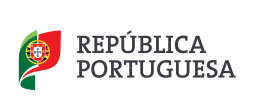Sound e New Media Art
Coordinator: José Vasco Carvalho
Members: André Baltazar, Beatriz Albuquerque Mendes, Cristina Sá, José Alberto Gomes, Vasco Carvalho, Levi da Silva, Lorena Alves, Maria Cunha, Sahra Kunz.
Description: The transdisciplinary models of new media have potentiated new practices and forms of expression. New Media Art is full of mediated interactions and is influenced by space, object, and technology. The interdisciplinary proposal of the new media allows researchers to provide a methodological response to theoretical deepening, practice-based research and practice-led research. The focus area, Sound and New Media Art propose the mapping and systematization of methods, practices, and technologies applied to new forms of expression and artistic representation. The group crosses research between two main themes: the study of the aural culture and the intersection between sound and technology-based music (Sound Ecology, Sound Art, New Interfaces for Musical Expression, Augmented Musical Instrument, Contemporary Musical Currents); and the issues of conceptualization, implementation, mediation, and presentation of the New Digital Media (Interface; Digital Mediation; Digital Art, Technological Interactive Art, Virtual and Augmented Reality).
Cinema and Visual Arts
Coordinator: Pedro Alves
Members: Alexandra Balona, Carlos Lobo, Carlos Natálio, Carlos Ruiz Carmona, Daniel Ribas, Filipa Ramos, Jaime Neves, Luís Teixeira, Maria Inês Lopes, Nuno Crespo, Pedro Alves, Sara Castelo Branco Sónia Neves, Maria Coutinho.
Description: Cinema and visual arts are fields under constant expansion and problematization. They maintain a close dialogue and interchange with other arts that never ceases to question their own ontology, both from outside as from within. Mapping this complex process is important, in order to understand how diversified cinema and visual arts have been becoming, not only in their apparatus (of production or reception), but also in their different processes of creation and extensions. Cinema and visual arts offer significant artistic, cultural and social possibilities, therefore demanding for research that analyses the multiple perspectives, situations and gestures of creation and experience. This research, developed at CITAR, is done not only through classic theoretical-based methodologies, but also through art- and practice-based research. Our framework on cinema and visual arts focuses in three main domains: Contemporary Cinema (modes of production and exhibition; non-linear and complex narratives; hybridism; sensory cinema; slow cinema; archive cinema; audiovisual essay); Visual Arts (expanded and experimental cinema; video; photography; painting; new technologies applied to visual arts); Art, Criticism and Politics (critical thinking and contemporary culture; art institutions and systems; arts education; political visual art and cinema; social and environmental commitments through visual arts and cinema).
Heritage and Conservation-Restoration
Coordinator: Patrícia Moreira
Members: Carolina Barata, Catarina Pereira, Eduarda Vieira, Frederico Henriques, Gonçalo de Vasconcelos e Sousa, Henrique Pereira, Joana Teixeira, Jorge Mascarenhas, José Guilherme Abreu, Karen Barbosa, Laura Castro, Luís Canotilho, Maria Aguiar, Maria João Revés, Maria Sousa, Mário Pastor, Martha Tavares, Nuno Camarneiro, Patricia Costa, Pedro Andrade, Rui Bordalo, Salomé Carvalho, Sónia Rocha
Description: the research developed within this group concerns the study, valorization, and management of heritage as well as conservation and restauration approaches and methodologies, including digital humanities, green conservation and awareness for climate change impacts on cultural heritage. This group involves a multidisciplinary team to respond to national and international relevant research challenges framed within the UN 2030 Sustainable Development Agenda Goals with a wide range of competences, from theoretical issues to all practical and scientific aspects related to heritage knowledge and research.




